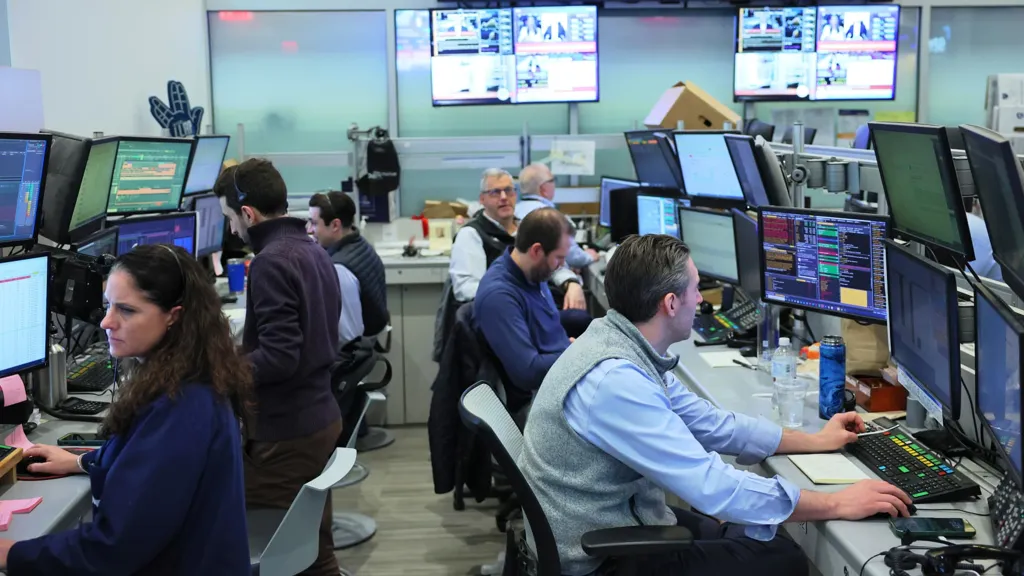Wall Street finally got good news on the tariff front in President Trump's dramatic reversal on Wednesday, but the path forward for investors, the economy and companies remains murky. The stock market exploded higher on Wednesday, with the S & P 500 posting its third-largest one-day gain since World War II, after President Donald Trump took to social media to announce a 90-day pause on "reciprocal" tariffs, except for China. All other countries will see a 10% baseline tariff rate until July as trade negotiations continue. The decision -- coming about 13 hours after the president's latest tariff hikes went into effect -- encouraged investors who had worried that a heavy-handed approach to trade would drive the U.S. into a recession and raise inflation.
"This is really the first piece of good news to come out of the entire trade policy announcement," said Art Hogan, chief market strategist at B. Riley Wealth Management. "The fact that there is now a 90-day reprieve allows time for negotiations and negotiations are exactly what Wall Street would like to see."
"Before this announcement today, there was no certainty over the duration and end game of the higher tariffs that were announced" on April 2, Hogan added. "Now we know there will truly be a path towards negotiations to make the tariff impact much less draconian."
However, many investors worry that markets are far from out of the woods, as there are three months until early July to see how tariffs will affect global trade, the economic outlook and the path of corporate profits. China also remains a question mark as trade tensions rise between the world's two largest economies. At the same as he suspended most of the highest tariffs, Trump also hiked tariffs on Beijing to 125% effectively immediately. Earlier on Wednesday, China said it would hike its tariff rate on U.S. goods to 84%.
"Tariffs are not going away," Vital Knowledge founder Adam Crisafulli said. "China's tariff rate is now in triple-digit territory, and who knows what happens in 90 days when this pause concludes."
"This White House has a clear agenda aimed at reorienting global trade, and they seem intent on executing it. The shock of April 2 also will leave a lasting imprint on the psychology of companies and governments for a very long time," Crisafulli wrote. "Trying to figure out the EPS estimate for this year remains extremely difficult."
Risks of an economic slowdown also persist. Even if the U.S. averts the worst case scenario of a recession, continued uncertainty around tariff policy could drive companies to curb hiring and consumers to pull back on spending -- pointing to an economic slowdown. What's more, even if Trump has moderated his stance on some tariffs, the charges remain historically high. In 2024, the U.S. had an effective tariff rate of just 2.5% on all imports, according to the Tax Foundation.
"If you would've told us last week that we were gonna have a 10% across the board tariff wall around the United States, that still would've been a painful impact to growth," leading to estimates for gross domestic product and "a lot of inflation," Frances Donald, chief economist at RBC, said on CNBC.
"90-day pauses are not an eradication of tariff risks, so companies are still going to be looking at uncertainty and a lot of companies around the world [will be] waiting for what their individual negotiations" will bring," Donald continued.
"Respite? Further economic suicide?," asked Peter Boockvar, investment chief at Bleakley Financial Group. "It will all depend on where you source product from of course, and unfortunately about $450 billion is still being imported from China."
As David Kelly, chief global strategist at JPMorgan Asset Management, warned: "This embrace of tariffs isn't over yet, and if we stick with even the level of tariffs that we're at right now after this 90-day pause, that is still quite damaging to the U.S. economy."
